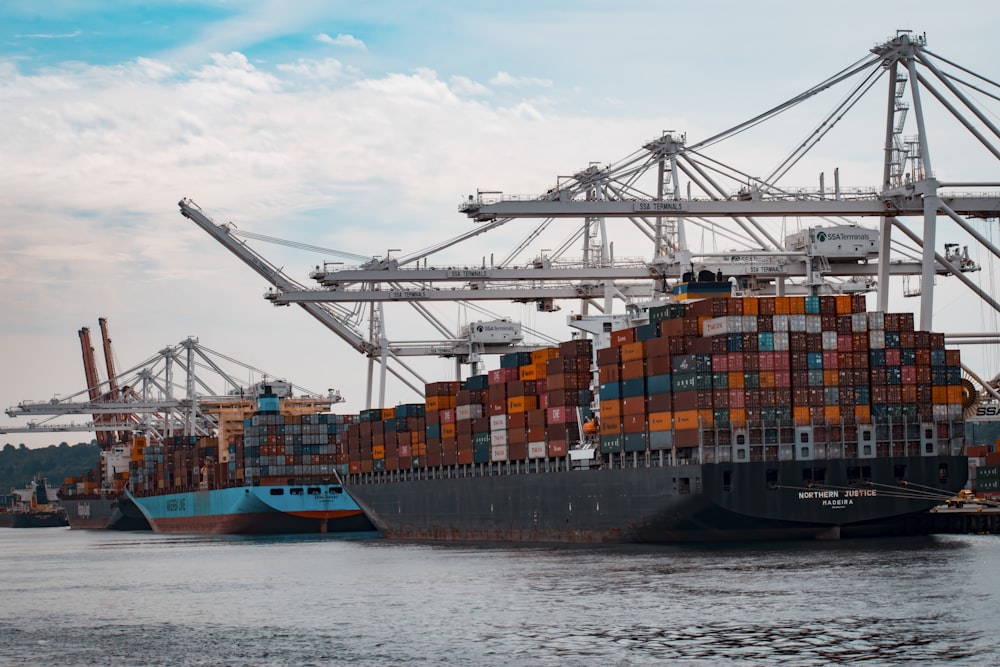U.S. Port Slowdown Signals Deeper Economic Strain As Supply Chain Risks Resurface
Image Source: Unsplash
Looking beyond the US stock markets for economic indicators. Let's look into the US Ports for a broader insight into the deepening crisis that could be parallel to that of Covid pandemic according to many economists. In-fact, shipping levels are fast reaching that Covid level already.
The situation across US ports is a very different scenario to the one that has been playing out with the recent rebound in US Equities. An area where many are calling the bottom and the worst being over. And of the stock market, that may just be true. But for the wider economy trouble is brewing.
As factories in China wind down production to export goods to US, and shipping levels nosedive, regardless of any near term shift in trade policy with China, the US supply chain is about to get smacked. Shipping traffic is down 20-30% a week directly as a result of 50% of orders being cancelled across a wide range of goods.
This in turn becomes a knock on effect for US domestic freight, trains and haulage, if trains and trucks fall under capacity it becomes non viable for these companies to continue their services which then causes another collapse within the supply chain finally resulting with job losses.
The tariffs are a shock wave to the entire supply chain and the very system that the modern trading world is built on. We learned quickly during Covid that the slightest disruption to shipping and deliveries into ports has knock on effects across the entire retail and consumer world that takes months to see normal deliveries resume. They’re a devastating blow to many US businesses who have been left scrambling to find alternative suppliers and little to no time to plan or face ever changing costs on tariffs and therefore unable to plan or determine what their end costs will be on delivery causing disruption to the end consumer. Or even when delivery will be. Causing the consumer to look elsewhere for the same product.
US also faces backlash on it’s export industry, both from retaliatory tariffs on US goods and on a lesser scale the movement that many consumers are boycotting US goods. This will be yet another impact to the US economy.
Even if the trade war was to reach a conclusion in the coming days or weeks, the disruption to the supply chain (especially from Asia) will not be rectified for many months, even up to a year. The impact this will have on the US economy is almost certainly less choice of inventory and near term higher prices with uncertainty on delivery times and costs and ultimately could be inflationary near term. Any major disruption to the supply chain just as we experienced during the pandemic, is extremely damaging to the economy. This risk is not reflected in the stock or equities market at this time.
The long term outlook and mindset does remain positive, and that is important to remember that this has been a self imposed crisis, not one caused by a serious underlying economic dilemma. The world could look very different by 2026. Let’s also remember that many container ships are sitting out in the oceans waiting, those at least will be a saviour short term in the supply chain as they can reactivate supply in a matter of weeks. But uncertainty brings risk and the stock market is only a snapshot of the overall health of an economy at best.
More By This Author:
Gold Pulls Back From Rally Highs As Technicals Signal Near-Term Bearish Repositioning
Equities Hover Near Highs Ahead Of Jobs Data As Market Balances Breakout Potential With Tariff Uncertainty
Crude Crashes To Multi-Year Lows As Supply Surges And Global Demand Weakens Ahead Of OPEC Meet
Enjoyed this article? Invest in a subscription to expand your horizon towards advanced wealth creation.
Visit our more




